AudioCulture
The noisy library of New Zealand music
Te pātaka korihi o ngā puoro o Aotearoa
Fast Crew
Australia beckoned, but an uncleared sample stymied their early success and despite a second album, the group faltered. However, one of the group’s vocalists, Dane Rumble, found success by recreating himself as a solo pop star.
The early years
Dane Rumble was originally born in Tokoroa but moved to Auckland when he was five. His stepfather was a guitar player and got him interested in heavy rock acts such as Led Zeppelin and AC/DC. However, in his teen years he was drawn towards hip hop and shared this interest with two friends – Jeremy Kent-Johnston (aka Jerome Fortune) and Brad Devcich (aka Diablo) – while Rumble took the MC name Kid Deft.
Jerome Fortune had his first opportunity to perform live at the Thursday hip hop night at Adam’s Inn on Wyndham Street, Auckland, a bar known more for its $1 beer specials and ease of entry for underage drinkers than for its music.
He recalls pulling out the inputs from one side of his car stereo so they could run a mic through it, allowing them to rap out of one side while the beat still played through the other.
Those early experiments in learning to rap slowly gave way to a desire to get beyond just practising rapping over other people’s beats. After attending a Naughty By Nature concert, he and Rumble were inspired to start creating their own music.
Looking back, Fortune remembers it took a while before the final line-up of the group came together. “Brad was a schoolmate from Auckland Grammar. Dane was a friend from a larger group – he was one of the St Peters boys. We used to party together. Fast Crew initially had about 15 people in it I think, but after the first couple of days of meeting up at my mum’s house to work on our rapping, only three of us remained: Dane, Brad and I …
“At that time, everyone had Napster and iMesh, so you could download software and a lot of that was music production software. So I really got into music using pirated software. Then one thing went to another and I started putting my own instruments in there – guitars and pianos.”
A key step in their development was when Fortune moved into a place in Newmarket which he turned into his own studio, named Morrow Suites. They were able to put sound insulation on the walls which led to long sessions of hanging out and recording music in a laidback, fun environment. Fortune himself laid down many of the guitar parts (including those on ‘I Got’), but later he did get more experienced guitarists to redo some of them: most notably the guitar solo on ‘Under Pressure’ by Tim Arnold of Pluto.
Next to join was Rebecca “Becks” Benner (who later changed her name to Rebecca Le Harle), a classically trained opera singer recommended to them by a mutual friend. She already had some experience singing in jazz, funk, and a capella groups, though she was encouraged toward a more relaxed style for her work in Fast Crew. The line-up was completed by Josh Thorne (DJ Alias), whose brother happened to be friends with Fortune.
Fast Crew’s early music took a mix of influences from classic rap (Tupac, BIG) to funk (Ohio Players, known for the track ‘Fire’) to the 1970s rock that Rumble had been brought up on. Fortune created most of their beats and music, while Rumble provided ideas for hooks and chorus melodies.
Set the record straight
Fast Crew’s first single, ‘Mr Radio’, came out in February 2002 – a laidback hip hop track that was driven by some slick acoustic guitar playing (reminiscent of Nesian Mystik, who had their first hit the previous year) and sweetened by the last minute addition of Benner’s vocals into the mix. The single was released on a new label, AKrite, that had been set up by their manager, Gareth Popham (co-owner of Fu Bar) in collaboration with promoter Dave Roper (the other co-owner of Fu Bar) The early buzz around the group meant they were able to organise distribution via Universal Records.
The real breakthrough came in 2003 when Fast Crew released ‘I Got’.
The real breakthrough came the following year when Fast Crew released ‘I Got’ – a single that captured the goodtime, party atmosphere of their sessions at Fortune’s studio. The accompanying music video, by Greg Riwai, matched this upbeat feeling by using a slow motion filming technique, which had the rappers delivering their lines at half speed so the footage could then be sped up (with them mouthing the lyrics in time, while everything else in frame appeared frantic).
The song hit No.26 in May 2003 and rode the charts for almost half a year, peaking at No.4; its success was buoyed by the growing interest in local hip hop: Scribe’s ‘Stand Up’ hit No.1 in August. Fast Crew gained another boost through a high profile support slot for Missy Elliott and Busta Rhymes. There was immediate interest from major labels on both sides of the Tasman and they eventually inked a deal with Warner Music Australia, who hoped to break them both in that territory and throughout Asia more broadly.
Fast Crew brought a bit more attitude on their next single, ‘It’s The Incredible’, with its upfront riff and more aggressive rhyme style (while retaining a funky feel underneath). It debuted at No.8 on the local charts in November and rose to No.5.
With the pressure on to follow this up with a full-length release, the group were relieved to gain a $50,000 NZ On Air recording grant which allowed them to relocate to York Street Recording Studios to complete their debut album. It also allowed Fortune and Popham to head to Hollywood to get it mastered by Bernie Grundman (Snoop Dogg, Eminem, Michael Jackson). Set The Record Straight (2004) entered the charts at No.11 at the end of the following year and produced another Top 10 hit: the downbeat number ‘Suburbia Streets’. This gave Benner a chance to showcase her own take on rapping in one of the verses (still delivering her lines with some melody, but hitting each syllable with the rhythm of the beat).
The group were now at the forefront of the local hip hop scene which led them to play at the Big Day Out and support slots with a run of big overseas acts: The Black Eyed Peas, D12, Chingy, and DMX.
However, they did create a bit of friction within the local hip hop community, which had such a firm footing in conscious rap (eg Che Fu, Nesian Mystik, King Kapisi) and punchline-driven battle rhymes (Deceptikonz). The fact that Fast Crew made party music – and had found such success with only their second single – raised the hackles of some, and resulted in a few snarky reviews and articles. However those in the industry knew they were important in spreading the reach of hip hop beyond the hardcore fans. Consequently they were treated with respect where it counted. They were offered the chance to provide an exclusive track, ‘Oh Really’, for one of DJ Sir-Vere’s Holla Hour compilation and taking part in the second year of the ground-breaking Boost Mobile Hook-up tour.
They soon brushed aside any concerns with tall poppy problems at home by setting their sights on breaking Australia. ‘I Got’ had made an immediate impact, charting at No.22, and the Fast Crew received a good reception within the hip hop community and from expat Kiwis.
Despite this, Fortune recalls the wider public were less welcoming. “At that time in Australia, the idea of local hip hop was a relatively new thing, except for the hardcore people who’d been into it since the 80s. So you’d be wearing a baseball cap and a car full of people would pull up and start abusing you and calling you homies. I remember we did a show in Sydney and there was a punk group playing before us and when we came out, the punk fans started yelling at us and telling us to fuck off back to America. They started throwing bottles at us and Dane was throwing bottles back at them. It was a funny time for hip hop in Australia – we were definitely way further ahead in New Zealand.”
Their next single, ‘It’s The Incredible’, dipped into the Australian top 50 and it seemed poised to break the group, but then the wheels came off their plans.
Truth, Lies, and Red Tape
Fast Crew’s progress was also interrupted by Becks’ decision to leave the group (her enthusiasm was sapped by the group’s busy schedule). Rumble emailed performing arts schools to find a replacement and was excited to meet with young singer, Gemma Copas. She had to hit the ground running – her first show was at Christmas In The Park 2005 in front of tens of thousands and a live TV audience.
FAST CREW FOUND THEMSELVES BEING SUED BY LAWYERS REPRESENTING THE EAGLES.
Fast Crew found themselves being sued by lawyers representing the Eagles. The main hook that started ‘It’s The Incredible’ was a re-working of the guitar riff from the Eagles’ ‘Victim of Love’. Unfortunately, the Eagles were notorious for their dislike of being sampled and weren’t satisfied to receive full royalties from the track and instead insisted that all copies of the CD be destroyed. Every copy of Set The Record Straight had to be removed from record stores and warehouses, then destroyed with legal notification supplied to prove that this had been carried out.
Fortunately, Copas soon proved herself an able member of the group and even had her own song ideas to contribute. For example, they had already written the basics of the track ‘Mary Mary’ but incorporated ideas Copas brought with her. Nonetheless, their progress was slow during 2006, with group members forced to find jobs to sustain themselves and therefore having less time to devote to music.
They did get to play a few fun shows in Australia, getting in front of their biggest audience yet as part of the Big Day Out festival line-up (on the east coast shows and back in Auckland), appearing at the Urban Music Awards in Australia, and being involved in a Motocross event in Sydney. They even landed an odd slot, stationed at the 18th hole of a golf course for an Australia Independent Music Stores conference in Cairns. At the end of the year, one of their songs (‘Set The Record Straight’) was picked up as the theme tune for an Australian TV show, Dangerous, and the group were flown over to shoot a video.
It took another full year before their follow-up album, Truth, Lies And Red Tape (2008) finally came out. The first single, ‘What Happened To Yesterday’, possibly caught fans by surprise, given its introspective lyrics, which discussed the time-wasting potential of smoking too much weed. Deeper on the album there were more signs that the easy progress of the group’s early years had been replaced by a struggle to keep their career on track.
“There were a few negative things that had happened before that,” Fortune recalls, “which led to some of the themes. The Eagles was a bit of a kick in the guts. And toying with the lifestyle of being a musician – sex, drugs and rock’n’roll – but there was a darker element to that, it even came through in the songs.”
One example is ‘Gotta Find A Way’ which was written at a time when the group were finding their gig opportunities were drying up and this happened to coincide with three members breaking up with their girlfriends. Musically, the album saw the band bringing in more live musicians, who would also form the backbone of their live sets – most notably guitarist Ben White and drummer Stan Bicknell.
The golden years of local hip hop had ended and, after eight years together, the original passion that drove the group was now being directed towards more everyday concerns of paying the rent and making future life plans. Fortune found himself being pulled away from his music work.
“I was the first to jump ship. I went to Vancouver. I had an epiphany one day and decided I wanted to go overseas. There was also the fact that I had an engineering degree – I was concerned that if I left it too, the degree would be worthless, so I had to decide whether I wanted to do engineering or continue on. That was my driver for leaving. Dane, Brad and Gemma continued to tour the second album, but after some time they decided to call it quits too. For me, I just really wanted to do beats, I didn’t want to rap any more. Maybe Dane felt the same, since he went more into singing.”
Fortune didn’t even appear on the album artwork for Truth, Lies and Red Tape and, despite the best efforts of his co-members, Fast Crew came to an end before the year was out.
Dane Rumble goes solo
Towards the end of Fast Crew, Rumble felt like he was the only one trying to keep the group going. He wasn’t willing to let go of his music career quite yet and so made an abrupt turn in a new direction. He ditched the baggy clothes and baseball cap look of Kid Deft and re-launched himself as a pop star, with hair spiked up at the front and an ever-present pair of sunglasses.
He taught himself guitar so he could write his own songs and then gained a bit of confidence with singing – though he wasn’t shy about dropping a few relaxed raps when it suited the song. His first release, ‘Always Be Here’, was given a full-spectrum pop sound by engineer-producer Jonathan Campbell. An early demo was passed around some friends in radio to get feedback and they confirmed that Rumble might be onto a winner.
Dane Rumble’s biggest earworm was yet to come.
Rumble created a live band by calling on the two main musicians who’d played with Fast Crew near the end, guitarist Ben White and drummer Stan Bicknell. He also got his brother to quickly learn the bass (despite never having picked up the instrument before) so he’d be ready when it came time to play live. A mere three months later they had their first gig, then stumbled through a few early performances before creating a unit tight enough to tour the country. In the meantime, the predictions had turned out to be correct and ‘Always Be Here’ received good airplay and a No.13 chart placing. Rumble’s next single, ‘Don’t Know What To Do’, was inspired by his self-doubt in the wake of Fast Crew and the support his girlfriend gave him to stay in the music game. It charted at No.10.
However, Rumble’s biggest earworm was yet to come. ‘Cruel’ had the kind of chorus that only took one listen to get deep inside your head and verses that rode high on danceable synth lines and a pulsating beat. Ironically, it was originally a track he’d struggled with and it was only completed after Te Awanui Reeder (Nesian Mystik) came on board to write a final verse. The track was released in two versions, with and without a rap near the end, so radio programmers could take their pick. It all came together with Rumble going beyond the success of his former group and hitting No.3 as well as being the most played local song on New Zealand airwaves that year.
Rumble continued to work together with Campbell on his subsequent 2010 album, The Experiment. Fortuitously, the pair also worked with producer Joel Little, who had both experience in guitar music through fronting pop punk outfit Goodnight Nurse and writing pop music for Kids of 88 (he went on to even greater heights through his work with Lorde). The resulting album remained guitar-driven, but also made the most of Rumble’s amazing ability at coming up with vocal hooks. The album debuted at No.1 and Rumble was named best male solo artist at that year’s music awards.
Dane Rumble was more in the public eye than ever, everything from touring the country as part of the Coke Bands On The Beach tour to appearing in the gossip magazines to producing his own line of jewellery and watches. He had a fourth Top 20 single off the album (‘Everything’) and hit No.2 when he featured on a track with local R&B singer J Williams (‘Takes Me Higher’). Rumble even managed to get his foot in the door of the Australian music industry again, when ‘Always Be Here’ appeared on pop compilation, So Fresh: Hits of the Spring 2010, which went platinum there (70,000 units sold).
His subsequent solo singles in 2012 (‘Tonight’ and ‘Lights Go Out’) failed to chart, though his collaboration with the Jupiter Project track, ‘Not Alone’, gave him another Top 20 hit (and a million streams across the various streaming platforms in the years that followed). However, being a star in the small New Zealand celebrity scene can leave a person feeling like they’re stuck in a fishbowl and Rumble eventually moved to Australia to focus on his jewellery/watch company, Culét.
Looking back now, Dane Rumble and Fast Crew are remembered as creating some of the most memorable party music of the 00s era. In a post-Lorde world, the fact that they had pop ambitions now seems like a credit to them and has none of the negative connotations that some critics seemed to draw at the time. Dane Rumble in particular deserves to be appreciated for his remarkable achievements: being involved in two gold-certified records, nine Top 20 singles (two of which went platinum), and managing to make a massive impact in Australia.
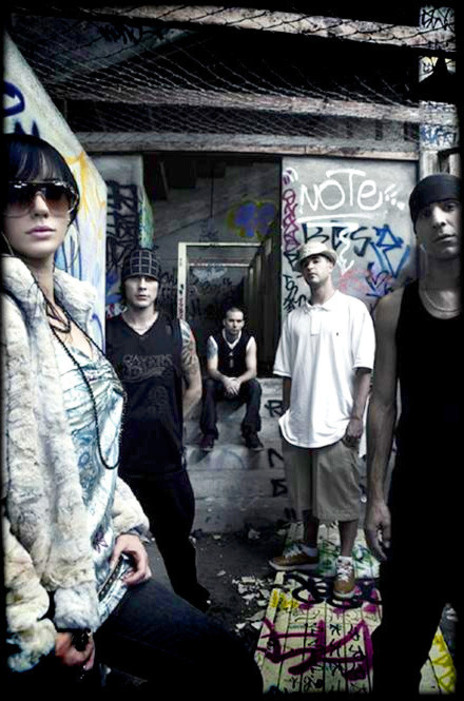
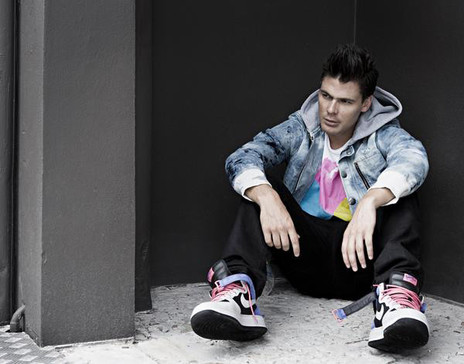
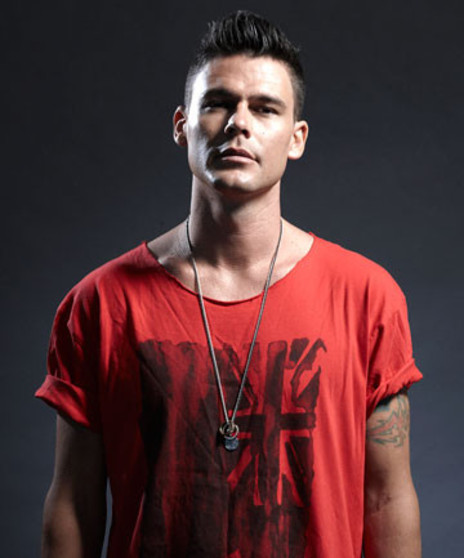
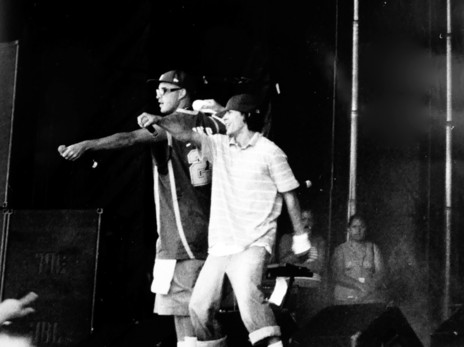
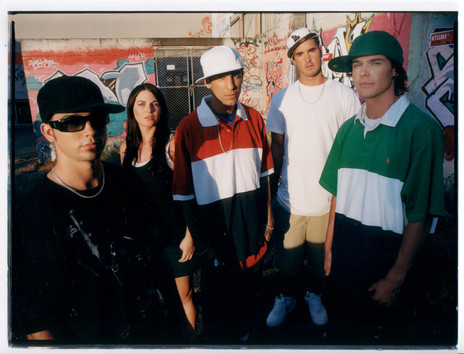
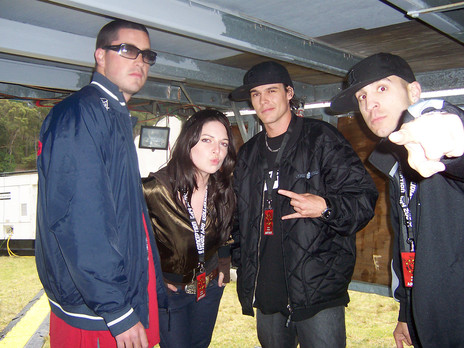
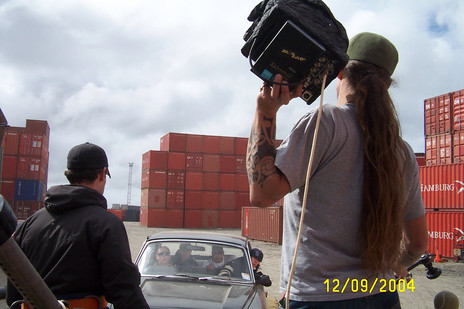
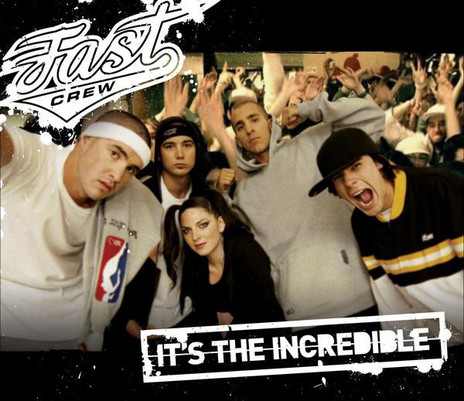
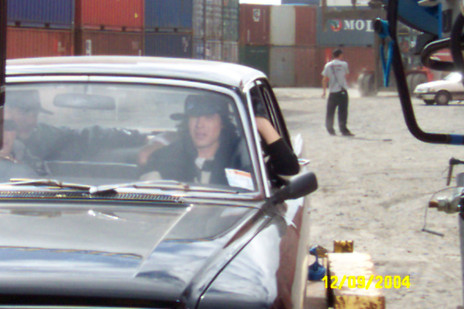
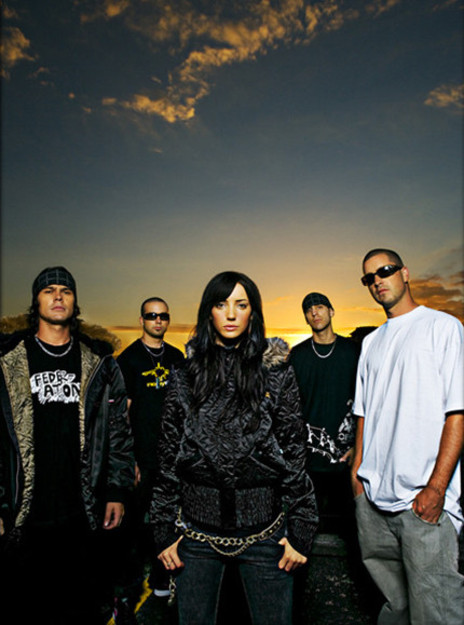

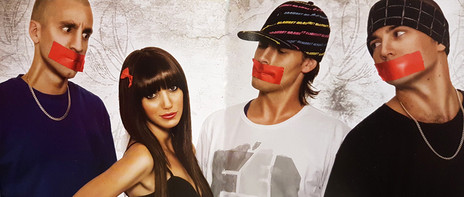
Jeremy Kent-Johnston - MC, producer
Dane Rumble - MC
Brad Devcich - MC
Rebecca Le Harle - vocals
Gemma Copas - vocals
Josh Thorne - DJ
Warner Music
Universal
AKrite
Fast Crew also appeared on the Baitercell and Schumacher album, Wall of Bass Technique.
Visit our sister site
NZ On ScreenMade with funding from
NZ On Air
